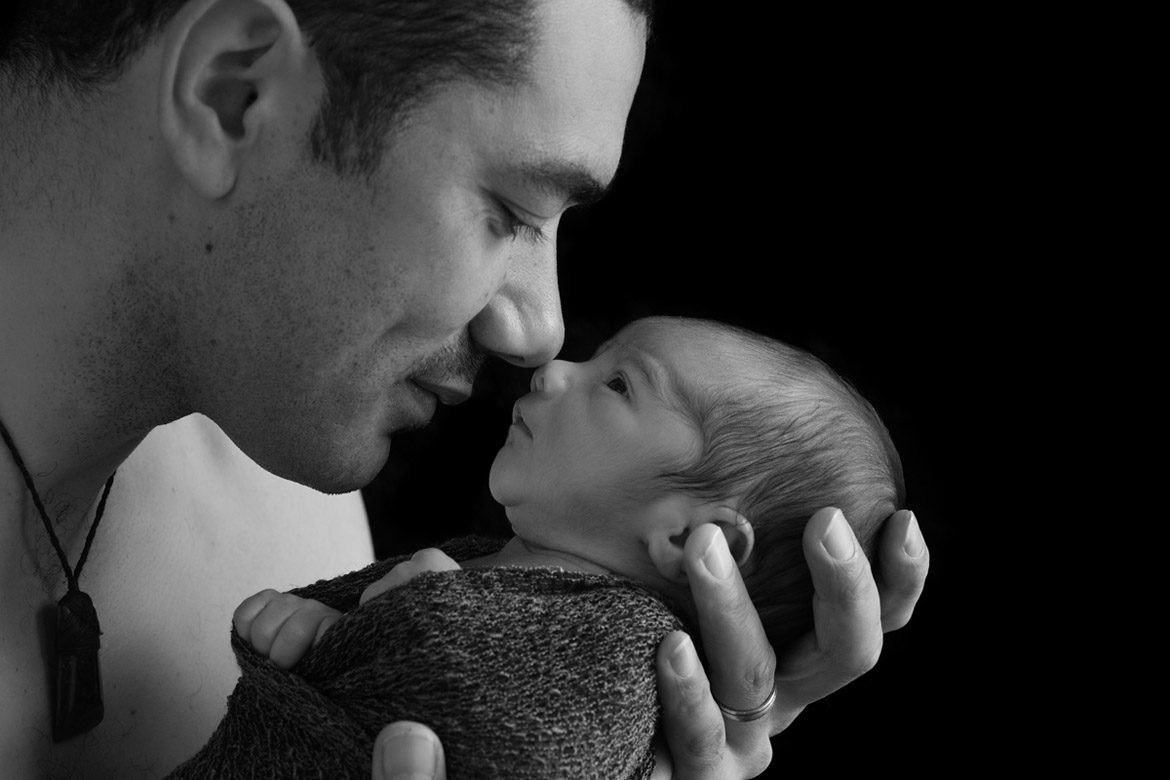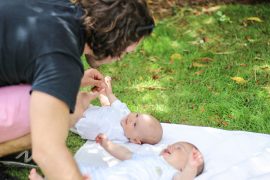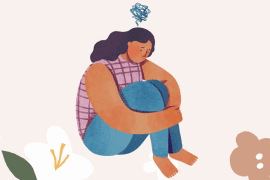By Lauren Porter
From the moment of that first contraction, the world can appear to forget fathers. Everything suddenly revolves around breasts, bonding and maternal instinct, leaving fathers to wonder where and how they fit in. Yet the process of becoming a father is an equally important birth. As with women, the arrival of a baby gives rise to a new identity for men. Men experience the highs and the lows, the confusion and need for support, and the bold exploration into the final frontier called fatherhood.
Some people say that focusing on mothers is unnecessary, that babies don’t care and caregivers are interchangeable. Unfortunately, this isn’t true. Babies emerge from the womb preferring their mother’s voices, knowing their mother’s scent and wanting their mother’s company. This doesn’t mean that another person can’t do the nurturing and do it well. It just means that physiologically and emotionally, mothers are primed to do this job.
However, that’s not the end of the story.
Fathers represent another way of looking at life – the possibility of an alternative dialogue. ~ Louise Kaplan, psychiatrist and author
Babies may need their mothers but that’s not the complete picture. Every relationship in a child’s life sculpts the brain architecture and imprints a map for negotiating the world. Just as plants need sunshine along with soil and water, babies need more than just one important person in their lives. Fathers – or significant others of any kind, including grandparents, same sex partners and close friends – bring another way of being and being loved to the lives of their children.
Fathers offer children a different lens, a unique and alternative way to view the world. Mothers are often the source of comfort and reassurance, the safe haven from life’s trials. While fathers possess immense nurturing abilities, too, they are also often well suited to being the base from which babies explore the world. Because they are often not the all-day feeders and all-night comforters, they have the energy and excitement to introduce babies to new people, new games and new ideas.
It is a wise father that knows his own child. ~ William Shakespeare
Getting to know your baby, discovering who she is, her likes and dislikes, her temperament and style is paramount. Having a baby is like moving to a strange new country. The best thing you can do is buy a good map and learn how to order off a menu. Start small and learn about this new creature. You will soon become fascinated and will likely find that your insights are helpful to your partner as well. Research shows that fathers are typically better able to describe their baby’s behaviors and personalities, likely because their perspective affords them some objectivity.
The most important thing a father can do for his children is to love their mother. ~ David O. McKay, teacher, pastor
Sometimes the biggest struggle for dads is in those first few months of life, the time when the only jobs available for them seem to be changing nappies and making tea. It is important to remember that this is a huge time of change for everyone and that often the best way to parent your child is to support her mother. If you have an older child, your role with them can expand and grow as you become their temporary focus. Not only is this sort of practical assistance likely to ease the stress and assist the mother-baby bonding that leads to better bonding with everyone, but it also begins an important lesson for baby: how adults understand love.
While what we do with our children is obviously critical, it is in the quality and essence of our adult relationships that children learn the most about their future. A child who is nurtured but never sees mum and dad speak and act in a supportive and loving way toward each other misses out on the big picture. If you have a daughter, you are teaching her what to expect of a man; if you have a son, he is learning about manhood itself.











